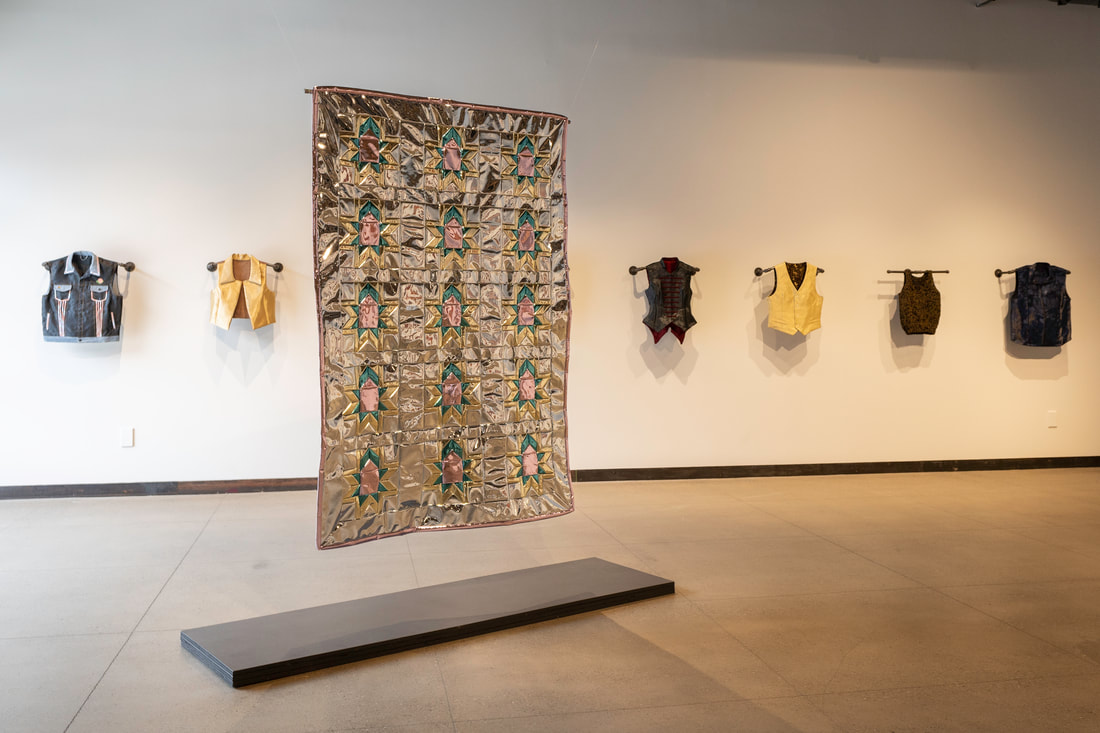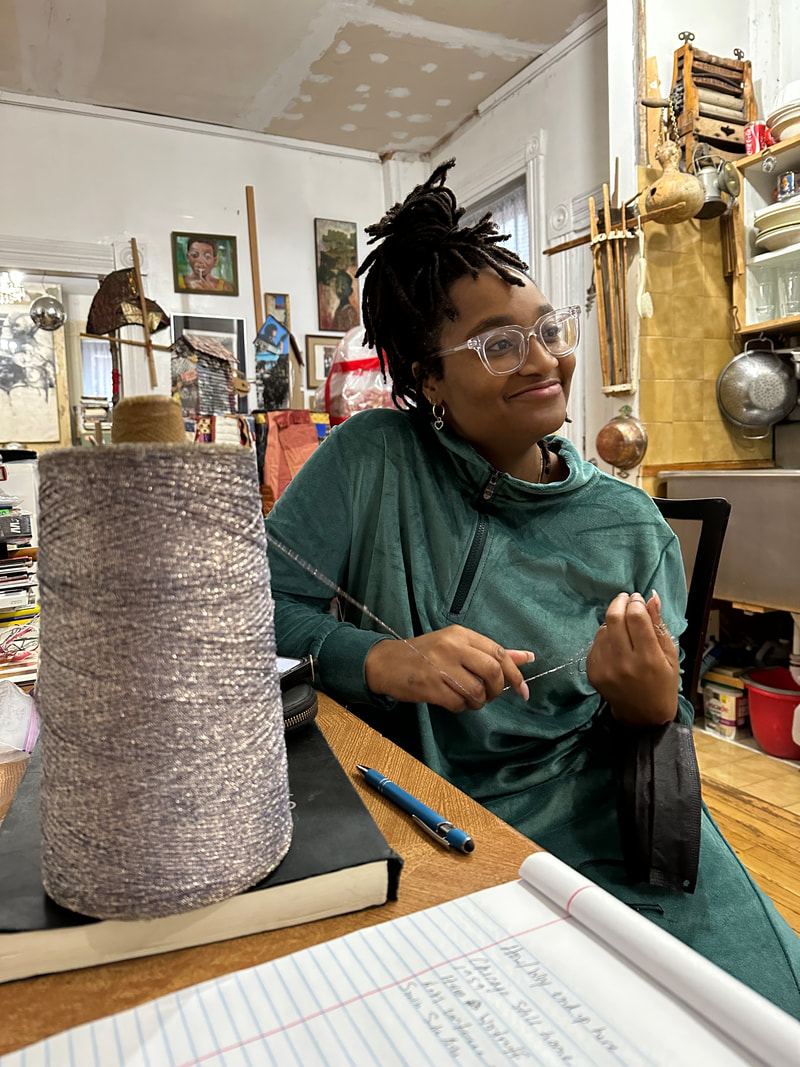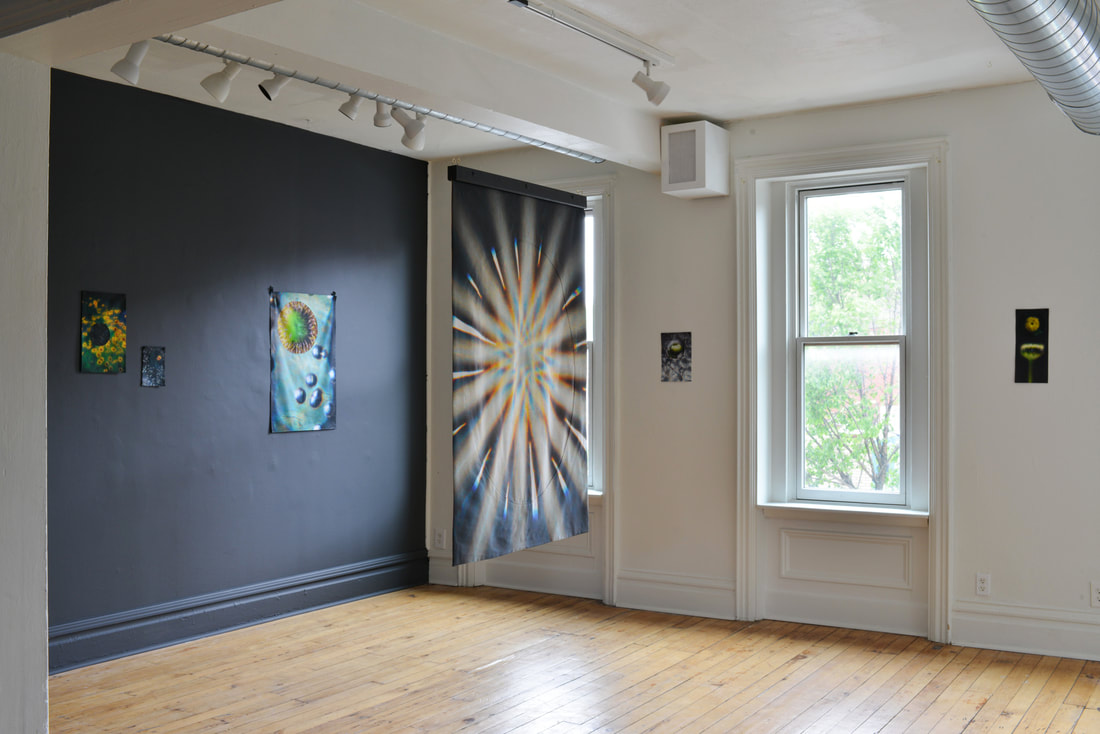By Catie Dillon
Edited by Anna Mirzayan | Images courtesy of Catie Dillon
Original Publish Date: 9/28/2021
The views and opinions expressed in this article are solely those of the author. They do not reflect the opinions or views of Bunker Projects or its members.I met Zoe Scruggs and Lou Tandon
during an afternoon studio visit at Bunker Projects. Zoe is a painter, music producer, and farmer influenced by Black Feminism and Agricultural Resistance, telling stories through media manipulation. Lou is a painter and music producer, navigating the realities of how perception, gender, and systems confront the physical body and inner self.
In their live-work space, it seemed clear that Zoe and Lou’s lives as artists weren’t compartmentalized. Their ongoing music collaboration, exploratory painting practices, and dedication to farming, gardening, and agriculture were present at the forefront. Zoe and Lou’s artistic curiosity was palpable: drawings, paintings, and hand-written notes scaled studio walls, looking like an investigative laboratory of sorts. I had the opportunity to chat with Zoe and Lou about the balancing of creative ventures, the appeal of drumming, layering material, and the joys of painting. Below is our conversation.
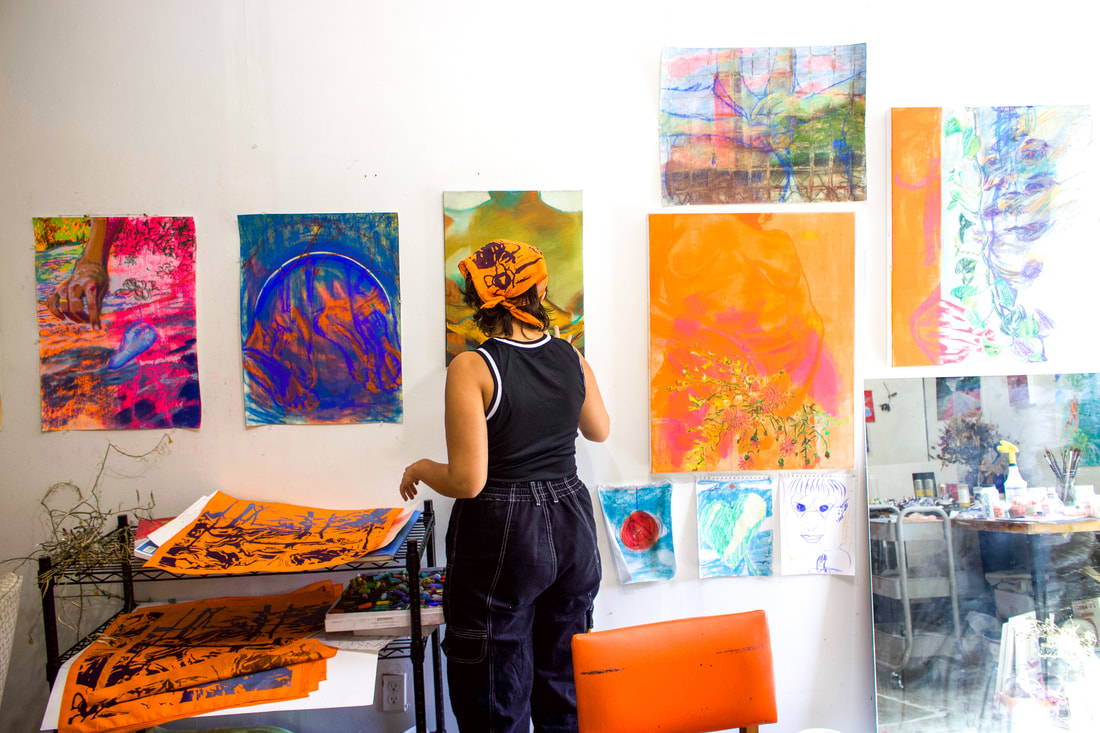
Lou Tandon drawing with pastels in the studio.
Did you have meaningful experiences looking at art or making art as a child?
Lou Tandon: I’ve always loved drawing. Since I was a kid, I have been making colored pencil drawings and collaging imagery. I came to painting later and I still feel like I straddle the ground between a drawing practice and a painting practice. I love that gray area between the two. That’s where my work sits.
In college, I started to learn about music technology and how you can use computers to make music. That history was really exciting to me. I started to produce more and decided to major in music. I feel like music and painting fit with each other and the balance back and forth keeps me engrossed.
Zoe Scruggs: I was born into a family of two very creative parents. My dad loves writing music and my mom loves scrapbooking. I always grew up thinking I’m going to be an artist. At first, it was this romanticized version of an artist’s life. I was actually bad at art for a really long time before I started taking it more seriously.
I went to RISD and I loved painting. I loved the way that people talked about painting. I wanted to be in an environment where people were making work and talking about the social implications of the work. It’s basically like philosophy and history and all of the different social sciences based in color, line, and form.
I recently listened to your collaborative track, “Rodeo.” Can you talk about meeting one another and the start of collaborating on music?
Lou Tandon: I was learning music in an academic environment, which is a really challenging way to learn about music. Music has such a social and cultural aspect to it and the classroom setting didn’t feel intrinsic to the medium.
In my fifth year of school, I really struggled with the community and the environment. I had met Zoe earlier that spring and I thought I produce music, Zoe produces, we should sit in the painting studio and play Google Drive files for each other. We wanted to get better at the drums and I had access to a recording studio at school. We decided to start Drumming Club.
Why the drums?
Zoe Scruggs: I came back to school with an interest in drums because of my farming immersion program on Soul Fire Farm. On the last day we were at a greenhouse, pulling weeds and playing music. It was the last hands-in-the-dirt day of farming.
When I sat down to play the drums, there was another person there and we were communicating while playing. The other person would nod and I could tell we were about to play faster. I didn’t realize that I could understand a person’s body cues while playing an instrument. After that interaction, I started making little bucket drums out of flower pots.
Lou Tandon: I had been in a band the spring before. When we were writing songs, we would switch instruments and I ended up on the drums. I feel like it reached out to the inner child in me.
I wanted to learn more and I ran into Zoe who was also having these experiences. We were both being called towards learning the drums. At our first Drumming Club session, Zoe brought her flower pot drums and our other Drumming Club member, Athena, brought bread. We played on the flowerpot drums and the bread, sitting in a circle, passing them around, and listening to each other play. Finding rhythms together was a really exciting experience. We did it every week for nine months.
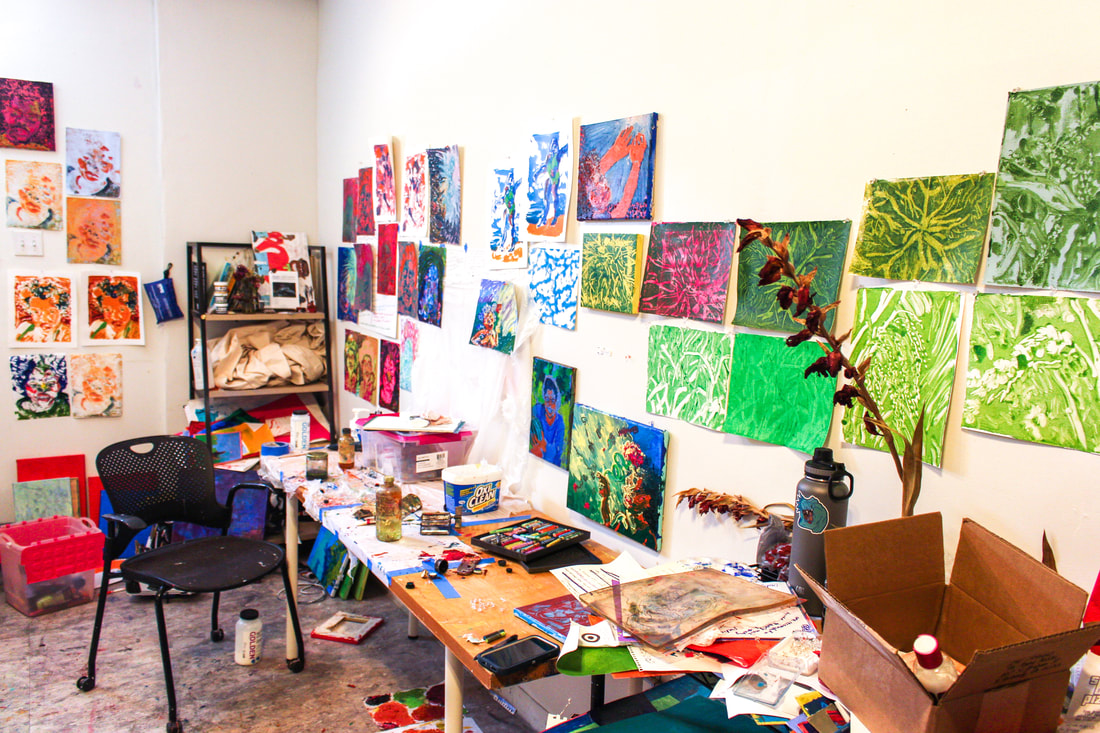
Zoe Scruggs’ studio at Bunker Projects.
Tell me about your experience at Bunker Projects. What are you thinking about in the studio?
Zoe Scruggs: Right after school, my painting practice was paused. I wanted to be outside in nature doing more farming instead of making art about farming. At Bunker Projects, I am relearning how to communicate through painting. I am rediscovering that painting is something that I love to do. I’m always trying to feed my curiosity. She’s very hungry.
Also, I am thinking about paint layering and agriculture. I was no-till farming which is better for the nutrients in the ground. It is best to make beds by layering mulch, dirt, and cardboard over a pod of grass to keep the soil healthy. I want to mimic that process in painting.
Lou Tandon: The way that I’m working with imagery has started to slightly change. I am interested in layering and how life experiences layer on top of each other. The painting surface is something that emulates that experience. There are things that are not visible, but they are still there on the surface. I love the way that a practice accumulates life influences consciously and subconsciously as you move through the world.
In my last show, I had a painting that was made over the span of two years. I have a lot of work that goes dormant and then comes back and changes. I work on numerous paintings at once because it’s a great way to be responsive to the energy that I bring to the studio each day. I am interested in the ways that a canvas can hold different energies.
Which in-progress paintings are you currently most excited about?
Lou Tandon: I have been working on this collection of moments where people are presenting things. When I began gardening this year, I didn’t know to thin seedlings so these carrots grew intertwined with one another. I was floored by this form and I wanted to bring it into the studio. My life has changed a lot over the past garden season and drawing from the forms as they change has been a helpful method of seeing and processing.
Another drawing depicts my dad holding this extremely poisonous jellyfish called man-of-war. Making this work has been a way for me to spend time with that moment. Why did he have the inclination to hold something so poisonous? What does it mean to call this creature a man-of-war?
Zoe Scruggs: That’s me as a shovel. Laughs. This painting is so fucking funny to me. I did it last night. In 2018, when I first started farming, I romanticized my relationship to farming. This painting is about that honeymoon phase. Right now, this is a study for a wedding portrait where I will be holding a shovel and the shovel will have a little bride’s veil. I’m experimenting with how I’m painting the shovel.
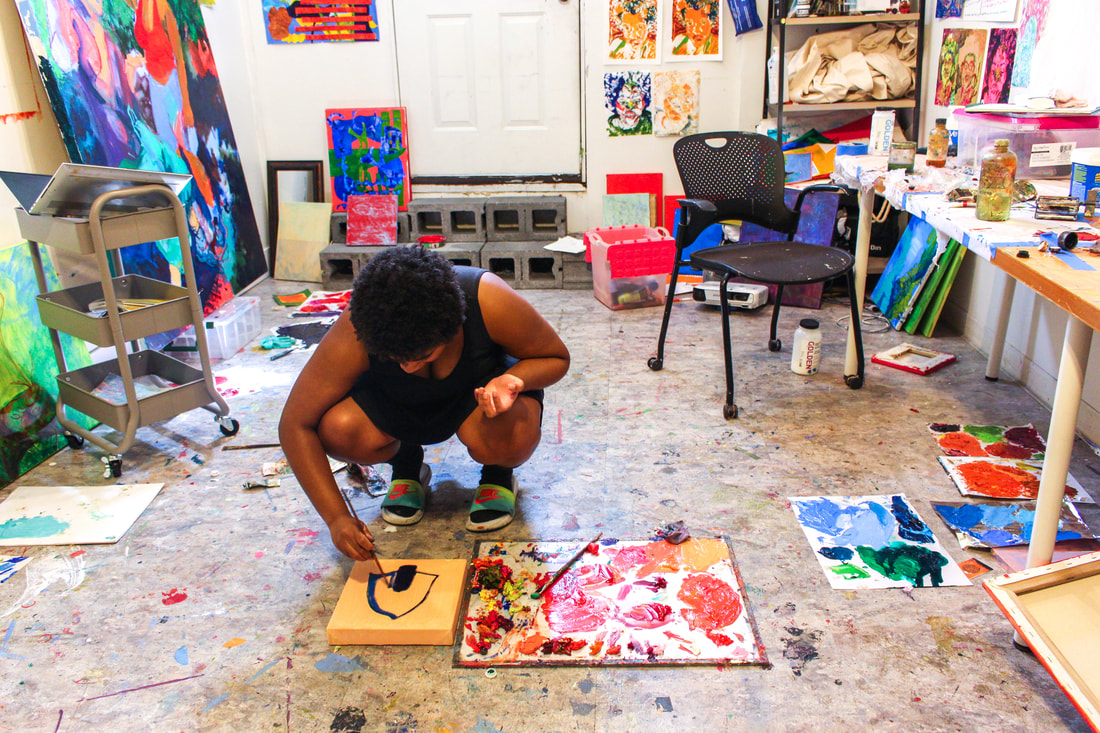
Zoe Scruggs painting a shovel in the studio.
It’s been such a pleasure discussing your interests in music and painting and farming today. Do you believe that you can communicate differently through different mediums?
Lou Tandon: Absolutely. Words feel so different from the medium of painting and the medium of music. I would say that different communication is a huge aspect of engaging in multiple practices, even if it’s just self-communication.
Zoe Scruggs: I think that everybody is just chasing after the same questions of life. Why am I here? What am I supposed to be doing with my time till I die? What is my purpose? What is the meaning of all this? We are all just using whatever we can find around us to discover the answer. When I look at these different disciplines and play in multiple arenas of making, what is that telling me about this world and myself? What is that saying about my interaction with life?
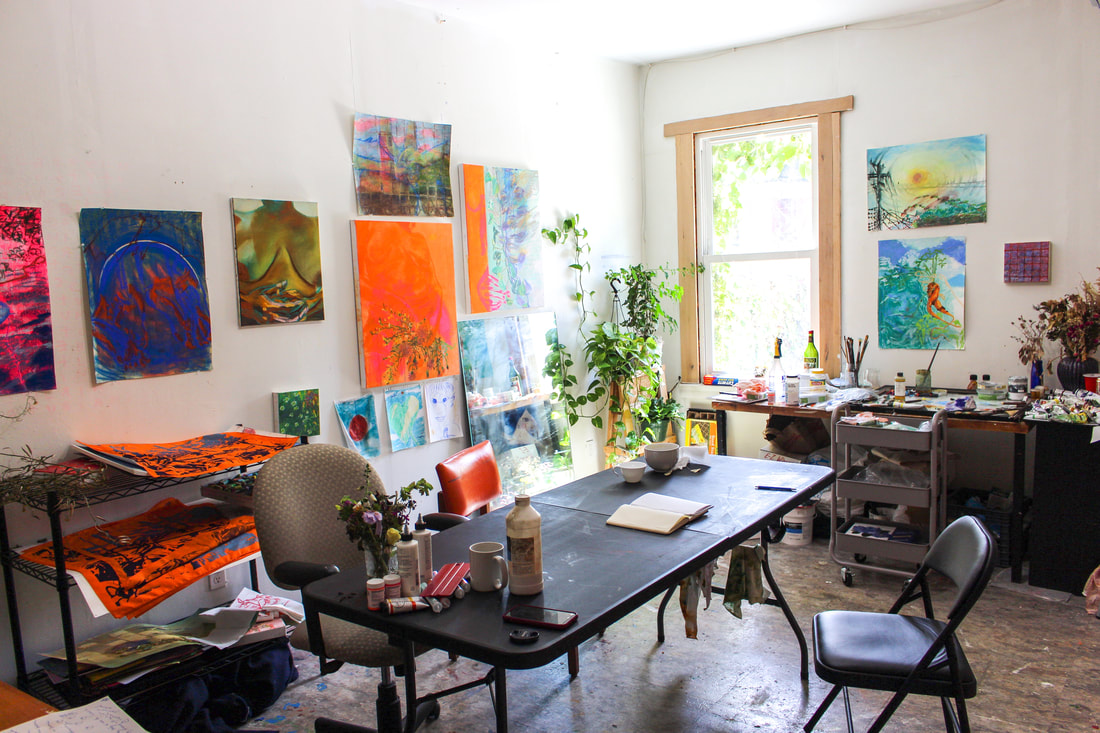
Lou Tandon’s studio at Bunker Projects.
*This interview has been edited and condensed for clarity.
Catie Dillon is from Pittsburgh, Pennsylvania. She graduated from Penn State University with a BFA in Painting. Dillon has been an artist-in-residence at Open Wabi Residency in Fredericktown, Ohio, Fish Factory Residency in Stodvarfjordur, Iceland, and PADA Studios in Barreiro, Portugal. Her paintings have been exhibited in a recent solo exhibition at the McDonough Museum of Art in Youngstown, Ohio, and in group exhibitions in New York, Pennsylvania, Ohio, Italy, and Portugal. Her writing has been featured on Vantage Art Projects.
Zoe Scruggs’ and Lou Tandon’s show, Maybe We Can Rest Here, opens Friday, October 1, at Bunker Projects.
